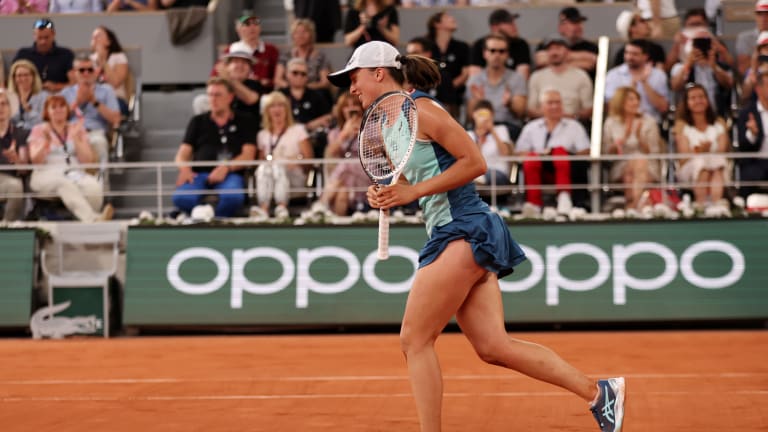The tennis summer swing is in full force across all surfaces, and with the turn from clay to grass comes more debates over lines and serves, questionable calls, and the perennial query: What does The Code say?
Court of Appeals is here to clear the air. Rebel Good, a past editor of Friend at Court, the USTA’s handbook of rules and regulations, has taught officiating for more than 30 years and will resolve all your rules questions and quarrels.
A Tip Of The Cap
In a match between two friends, Player A’s hat fell off, but Player B either didn’t notice or ignored it. They played the point out and Player A won, but then B pointed at the hat and said, “Oh, your hat came off, so I win the point.” I was called on to arbitrate. I said that B lost the right to claim the point when he played it out, and that furthermore, if he didn’t notice the hat, he clearly wasn’t hindered. If he did see the hat, he should have called it immediately. Was I right?
—Herb Duplissea, Canada
Perfect ruling and explanation. You should consider a career in tennis officiating. Under The Code, #33, a player “must stop play as soon as possible” in order to claim a hindrance. Furthermore, in an unofficiated match, a player cannot claim a point because their opponent’s hat fell off during play. The point would simply be replayed.
—Rebel Good
Got a question? Send it our way. Email your question to courtofappeals@tennis.com.
